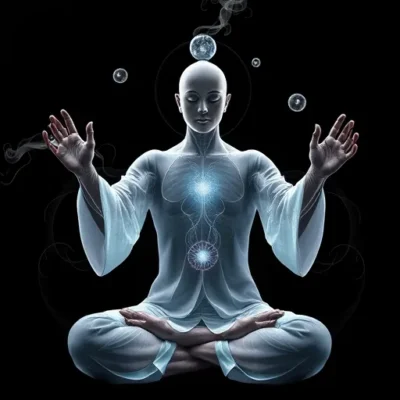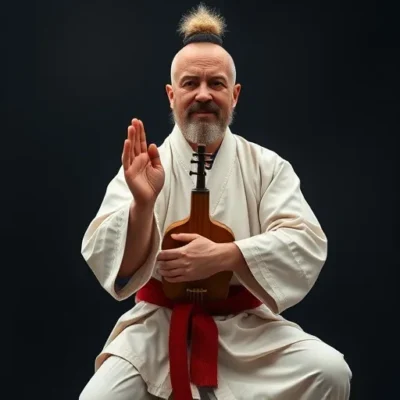Hypnosis and Qigong: Understanding the Differences and Exploring Non-Verbal Hypnosis
Greetings, this is Hypnosis Creator Tamura.
Today, I am writing from a chilly corner of New York, where the crisp air reminds me of the serenity of focused mindfulness. Recently, I had the pleasure of conducting a hypnosis workshop, where one of the participants shared an insightful piece of feedback. Below is the message, translated verbatim:
Participant’s Feedback

Dear Tamura,
Thank you very much for the workshop the other day.
I attended because I wanted to understand the differences between hypnosis and qigong.
I feel like I now have a faint understanding, though parts of it remain unclear. However, I did grasp some commonalities between the two.
What stood out to me was the experience of being in a thoughtless state and how that made external influence (or being influenced) more perceptible.
It was a fascinating sensory experience, and it has sparked my interest in non-verbal hypnosis as well.
Thank you again for the opportunity.
Hypnosis and Qigong: Commonalities and Key Differences
The interplay between hypnosis and qigong is a fascinating one, and while they share similarities, their differences make each discipline unique and valuable.

Commonalities
At their core, hypnosis and qigong both focus on achieving altered states of consciousness. By guiding the mind away from its usual state of busyness, both techniques facilitate a heightened sense of awareness and connection. This “thoughtless” state—often described as a meditative or trance-like condition—enables practitioners to tap into their mental and physical potentials.
In both hypnosis and qigong, practitioners often report benefits such as:
- Enhanced relaxation and stress relief.
- Heightened focus and clarity.
- Greater self-awareness and inner harmony.
Key Differences
The primary distinction lies in the level of abstraction each method involves:
- Qigong operates at a higher level of abstraction. It revolves around the concept of “qi” or life energy, which is intangible and deeply rooted in Eastern philosophy. The practice involves meditative breathing, slow movements, and visualization to cultivate and balance this energy.
- Hypnosis, by contrast, is more grounded and concrete. It employs scientifically established methods to influence the subconscious mind, often through verbal and non-verbal cues, guiding individuals into a focused and suggestible state.
While qigong often appeals to those drawn to spiritual exploration, hypnosis provides a more structured and systematic approach, making it accessible for practical applications like habit formation, therapeutic interventions, and self-improvement.

Exploring Non-Verbal Hypnosis
The participant’s feedback highlights a particularly intriguing aspect of modern hypnosis: non-verbal hypnosis.
Non-verbal hypnosis involves inducing a hypnotic state without the use of spoken words. This technique leverages subtle cues like body language, gestures, and even shared breathing patterns to establish a deep rapport with the subject.
The Power of Non-Verbal Communication
Communication is only partly verbal; much of what we convey is expressed through non-verbal signals. In non-verbal hypnosis, the practitioner taps into this channel to create a profound connection. Techniques include:
- Eye Contact and Gaze Control: Maintaining a steady, calming gaze can help draw a person into a relaxed and receptive state.
- Mirroring Breathing Rhythms: Synchronizing your breathing with the subject’s promotes comfort and trust, paving the way for deeper influence.
- Subtle Physical Cues: Small, intentional movements—such as rhythmic gestures—can guide the subject’s focus and encourage relaxation.
These methods allow for communication on a subconscious level, bypassing the analytical mind and enabling a direct interaction with the deeper self.

Applications of Non-Verbal Hypnosis
Non-verbal hypnosis is particularly effective in situations where words might fall short, such as:
- Establishing trust quickly in therapeutic settings.
- Enhancing relaxation during stress-reduction sessions.
- Facilitating self-discovery in meditative practices.
Why Learn Both Hypnosis and Qigong?
As Hypnosis Creator Tamura, I often encourage my students to explore both hypnosis and qigong. While each practice is valuable in isolation, combining the two can lead to a more comprehensive understanding of the mind-body connection.
Practical Benefits of Learning Both
- Holistic Skill Development: Learning both techniques helps to bridge the gap between abstract and concrete methods, making it easier to adapt to different situations.
- Enhanced Personal Growth: By mastering both, you gain a deeper understanding of how to harmonize your inner and outer worlds.
- Greater Flexibility in Application: The dual knowledge enables you to apply the appropriate technique—be it qigong for energy balancing or hypnosis for behavior change—based on the needs of the moment.
Turning Knowledge into Experience
True mastery lies not just in theoretical understanding but in practical application. By immersing yourself in these disciplines, you gain a first-hand appreciation of their principles, allowing you to internalize and personalize the techniques.

Join HypnoticCafe Workshops to Begin Your Journey
At HypnoticCafe, we are dedicated to helping individuals unlock their full potential through hypnosis. Whether you are a beginner curious about the basics or an advanced practitioner looking to expand your toolkit with non-verbal hypnosis and qigong insights, our workshops provide a welcoming space for exploration.
Thank you to all who participated in our recent session and especially to the individual who shared their feedback. It is always a joy to witness curiosity transform into understanding.
If you are intrigued by the possibilities of hypnosis or qigong—or both—consider joining our next workshop. Together, we can delve into the depths of these fascinating practices and discover new ways to enrich our lives.
Until then, I look forward to seeing you in New York or connecting virtually. Keep exploring, and may your journey of self-discovery be as enriching as it is enlightening.
HypnoticCafe
Hypnosis Creator Tamura

 Audible Audiobook
Audible Audiobook


Comments